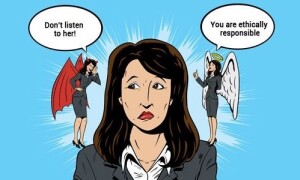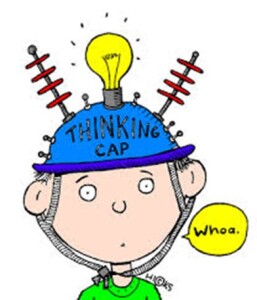Why do well-meaning people engage in unethical behavior? Given that a healthy financial market depends on trust, and that trust is earned through ethical behaviour, ethics are fundamental to ensuring the integrity of finance professionals.
A panel of two experts in ethical decision making from the CFA Institute—Jon Stokes, Director, and Paul Johnson, Manager and Special Investigator—spoke live to an audience of about 700 on October 21, 2020 in celebration of Global Ethics Day 2020.
A survey of 3500 retail investors showed which industry sectors they ranked as “highly trustworthy.” Medicine was at the top of the list, with 68 percent; financial services garnered 46 percent; and media was at the bottom with 29 percent.
When asked what were the “trust building attributes” of a good firm, respondents placed most weight on two things:
- the financial professional fully discloses fees and other costs.
- there are reliable security measures to protect my data.
“Note that neither of these is related to making the most profit,” Jon Stokes said.
Paul Johnson ran a quick survey on the audience in attendance: “Which has more influence on whether a person will engage in unethical conduct?” Of the two choices, 54 percent said “disposition” (a person’s moral character) and 46 percent said “situation” (outside circumstances).
Stokes and Johnson listed six circumstances that might influence a person to engage in unethical conduct:
- Obedience to authority – We are more likely to act in unethical ways when requested by a supervisor.
- Conformity with others – We become acculturated to behaviour and assume that it is normal and acceptable.
- Incrementally engaging in unethical behaviour – We subconsciously lower our standards over time through small changes. Excuses like: “I was just one mile over the speed limit…” become “I was just three miles over…” and so on.
- Following group decisions – We get into the “group think” mode. Simply being in a group lessens the individual feeling of accountability and responsibility.
- Over-confidence in ability to act appropriately – We tend to over-rate our honesty and fair-mindedness.
- Responding to incentives – We tend to overlook a behaviour if it helps achieve a goal. “The end justifies the means.”
Unethical behaviour often has a positive component, for example, speeding. (Going over the speed limit will get you to work faster and usually you don’t run over someone.)
“Framing” refers to how a person puts a context around an action. For example, in a drug sample group of 10 people, if one person dies, the manufacturer can say, “One person in ten died” or, “Nine persons in ten were saved.”
“Ethical dilemmas are a normal and predictable part of the job,” Stokes said. Become more conscious of how you act and think so you can intercept unethical behaviour before it becomes a problem.
He urged the audience to refer to the six fundamental ethical principles of the CFA Institute code of conduct:
- Client interests come first.
- Avoid / manage conflicts of interest.
- Provide full and fair disclosure.
- Engage only in fair dealing.
- Exercise reasonable care and prudent judgment.
- Maintain independence and objectivity.
Put on Your Thinking Cap
The second part of the webinar was spent discussing approaches for dealing with situations that might arise. This was done as a group session, in which the audience, through the survey tool, looked at which principles applied to a series of three cases. Two cases are summarized here.
Case 1. A client offered a lavish gift to an investment advisor, who was concerned that refusal would be tantamount to insulting the client. The ethical principle of “independence and objectivity” was identified by 85 percent of the audience.
Case 2. A financial advisor recommended an investment to a select group of clients—only those who attended his seminar. Here, three ethical principles came into play: “fair dealing,” “suitability for clients,” and “duty to clients.”
Throughout the case studies, a lively and informed commentary went on among the numerous participants via chat messaging. It was a fitting way to commemorate Global Ethics Day: by reminding us of the importance of collectively working through ethical dilemmas. ♠
Click here to sign up for Ethical Decision Making: a 1.5 hour course for members of CFA Institute.
CFA Institute Ethics Learning Lab
https://cfainstitute.nomadic.fm/signin
Ethical Decision-Making Program
PL credit:1.5 (SER credit:1.5); approximately 1.5 hours to complete
https://www.cfainstitute.org/en/ethics-standards/ethics/ethical-decision-making
GVV for Investment Professionals
PL credit:1.5 (SER credit:1.5); approximately 1.5 hours to complete
https://www.cfainstitute.org/en/ethics-standards/ethics/giving-voice-to-values
Ethical Decision Framework
https://www.cfainstitute.org/-/media/documents/support/ethics/ethical-framework-guide.ashx
The devil-angel cartoon is from the website Enago Academy. Permission pending.




